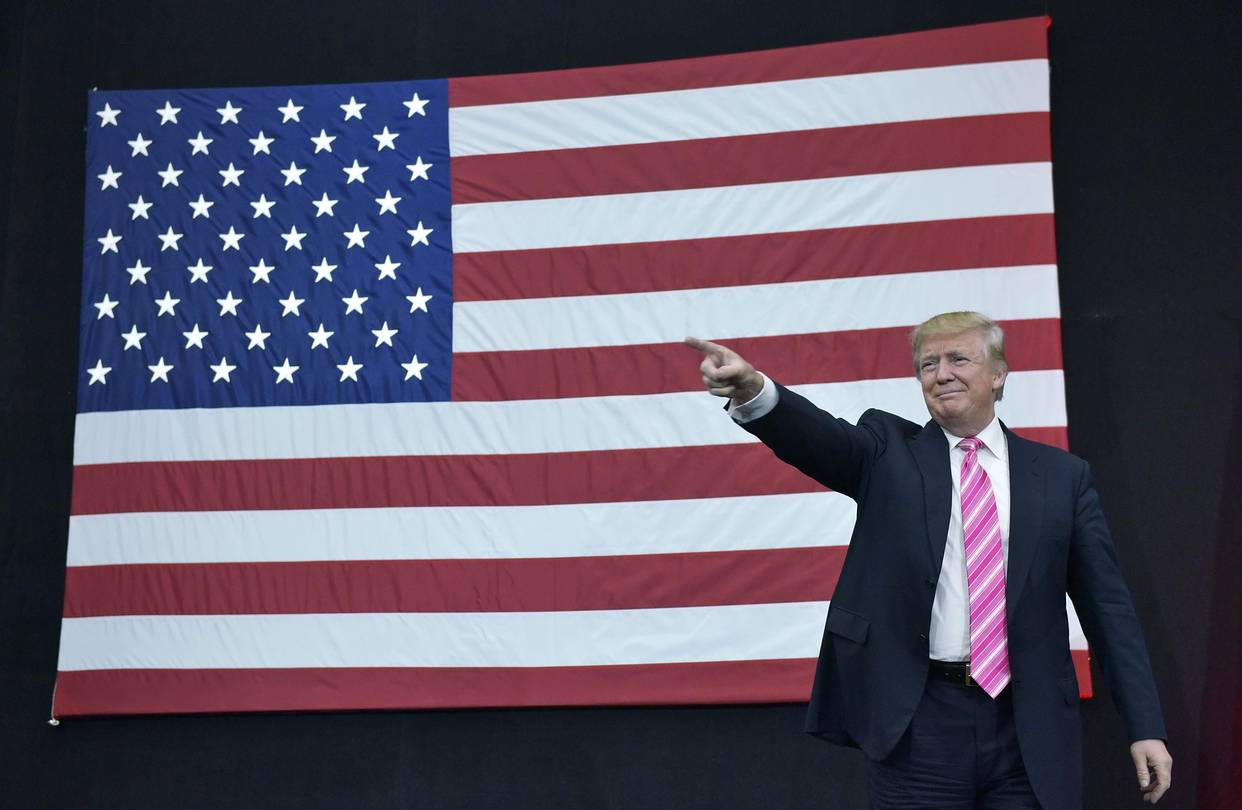Fascism in America
BY CALEB BALDWIN

In his first week in office, Donald Trump has dramatically altered the political landscape of the United States through a series of appointments, executive orders, and memoranda. It comes as no surprise that the swift implementation of many of his campaign promises has sparked rage amongst his opposition. Prior to the inauguration, political pundits remarked optimistically that Trump’s positions seemed highly malleable, and that perhaps by stroking his ego the White House might be able to rein in some of his more controversial promises. Now, after reinstating the New Mexico Policy, ordering the construction of wall along the Mexican border, and freezing immigration from seven Middle Eastern countries, it is clear that Trump will be moving forward without compromise.
The response to Trump’s policies has, frankly, been one of unwarranted shock. Every day since he took office, Donald Trump has implemented at least one of his campaign promises, resulting in overwhelming media attention and outrage from the general public. Press coverage characterizes every executive action as a surprise, when in fact Trump has maintained a fairly steady platform. Talking heads on major news networks characterize Trump as unpredictable, refusing to acknowledge that leaders such as himself have historical precedent. His opponents, meanwhile, lament each of his decisions as though they had expected their president to consider their positions and perhaps soften his own as an olive branch. They seem to be waiting for the president to realize that he represents all Americans, when in fact he only represents those who would keep him in power. Trump’s actions thus far indicate that he is not interested in upholding the values of a democratic leader and representing the interests of all Americans, but would rather focus on policies which increase his personal wealth and power. In short, Trump is interested in acting as a fascist leader.
This is not meant to be a comparison to the Nazi regime, and to the leadership of Adolf Hitler to whom every president in the last forty years has been compared. This is not meant to be alarmist, to illicit dread, or to widen the already staggering divide between the right and the left in this country. This is simply meant to find the shoe that fits an increasingly authoritarian and nationalistic foot. Political scholars have reduced fascism down to bullet points, by which Donald Trump is struck by all. There’s always resistance to considering America to be anything except a democracy. In a stark example of American exceptionalism, it seems that too many people feel uncomfortable thinking of the United States as anything except a light on a hill from which the free world draws its inspiration. People seem to be continually blind-sided by Donald Trump doing what every president does: making good on his campaign promises, and quickly. A wait-and-see approach is no longer acceptable. Donald Trump does not embody the ideals of a democracy. He does not embody the ideals of the Republican party, through which he ascended to the presidency. He represents American fascism, and American fascism must be acknowledged and exposed with clear eyes and with no uncertain terms.
